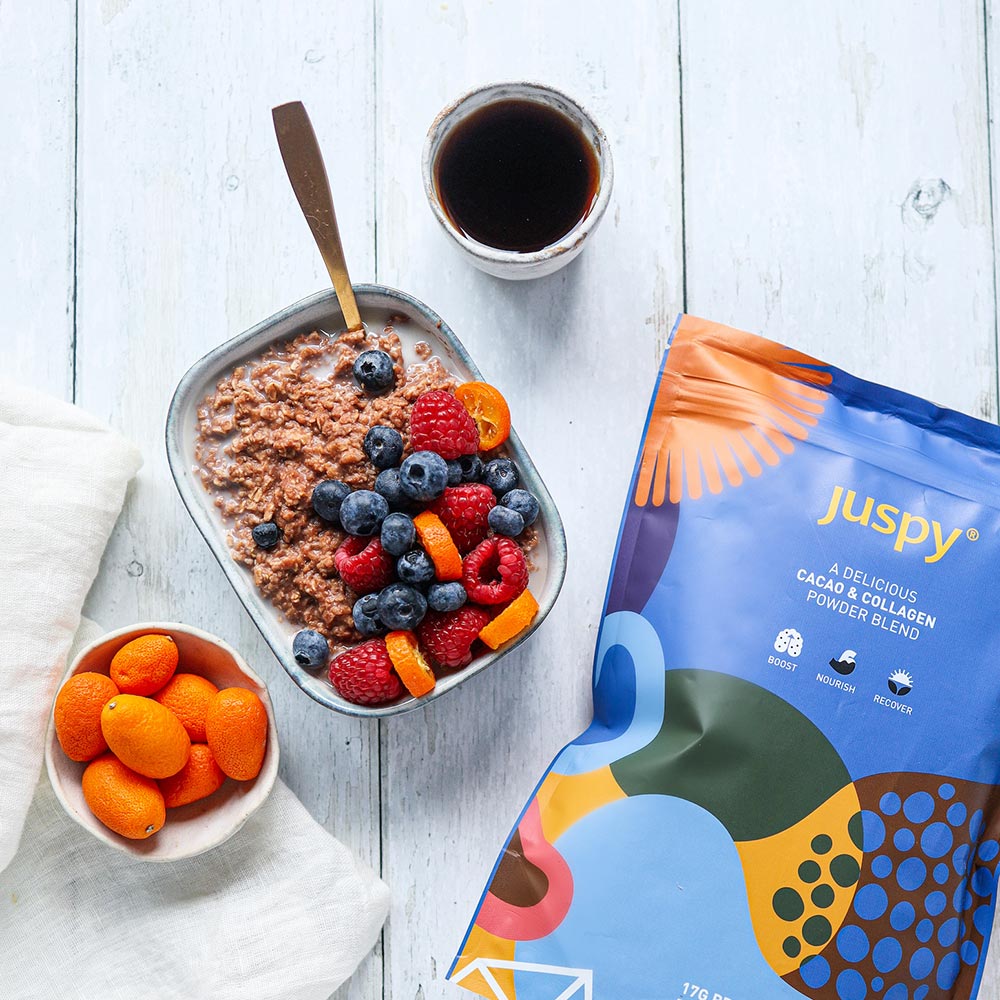You’ve probably heard about collagen in beauty ads, wellness blogs, or maybe even your gym locker room. But what is collagen, really? And why is it suddenly the star of supplements, skincare products, and protein powders?
Let’s break it down.
Collagen isn’t a trend—it’s the most abundant protein in your body. It’s what holds everything together, quite literally. From youthful skin to healthy joints and strong bones, collagen plays a major role in your body’s structure and function. But as we age, our natural collagen production starts to decline, which is where daily supplementation can make a real difference.
Whether you're new to the world of collagen or looking to deepen your understanding, here's your complete beginner-friendly guide to what collagen is and why your body needs it daily.
What Is Collagen?
Collagen is a structural protein found in the connective tissues of your body—think skin, tendons, ligaments, cartilage, bones, and even your blood vessels. It's made up of amino acids, especially glycine, proline, and hydroxyproline, which form long chains that provide strength and elasticity.
There are at least 28 different types of collagen, but the majority in your body consists of Type I, II, and III:
-
Type I: Found in skin, bones, tendons, and ligaments (most abundant)
-
Type II: Found in cartilage
-
Type III: Found in skin, muscles, and blood vessels
In short, collagen acts like the glue that holds your body together. And when your collagen levels drop, the effects are easy to spot—wrinkles, sagging skin, stiff joints, brittle nails, and slower recovery times.
Why Do Collagen Levels Decline?
Collagen production starts to slow down in your mid-to-late 20s and continues to decline steadily with age. By the time you’re in your 40s, your body could be producing significantly less collagen than it used to.
But aging isn’t the only culprit. Other factors that break down collagen or inhibit its production include:
-
UV exposure
-
Smoking
-
Excess sugar and refined carbs
-
Poor sleep and stress
-
Environmental toxins
The result? Loss of skin elasticity, joint pain, slower wound healing, and a higher risk of bone loss and digestive issues.
Why Your Body Needs Collagen Daily
While collagen is naturally produced in your body, replenishing it through your diet or supplements becomes increasingly important as you age. Here's why making collagen a daily habit is a smart move for your overall health:
1. Supports Youthful, Hydrated Skin
One of the most celebrated benefits of collagen is its ability to improve skin elasticity, firmness, and hydration. Regular collagen intake can reduce the appearance of fine lines and wrinkles by boosting your body’s own collagen synthesis. If you’re looking for a glow-up from the inside out, collagen is your skincare MVP.
2. Promotes Joint and Bone Health
Collagen is a critical component of cartilage—the tissue that cushions your joints. Without enough of it, joints can become stiff, painful, and more prone to injury. Collagen also helps maintain bone density and strength, reducing your risk of fractures and osteoporosis.
Daily supplementation can be especially helpful for athletes, older adults, or anyone with an active lifestyle.
3. Strengthens Hair and Nails
Tired of brittle nails and hair that won’t grow? Collagen provides amino acids that support keratin production, the protein that makes up your hair and nails. Users often report faster-growing, shinier hair and stronger nails within a few weeks of consistent use.
4. Aids in Gut Health
Your gut lining is made up of connective tissue that contains—you guessed it—collagen. Supplementing with collagen may help support the integrity of the gut lining, potentially reducing symptoms associated with leaky gut, IBS, and other digestive issues.
5. Supports Muscle Recovery and Growth
Collagen contains specific amino acids like glycine and arginine that aid in tissue repair and muscle recovery. It’s a great addition to a post-workout routine, helping reduce soreness and support lean muscle maintenance.
Discover 7 Surprising Benefits of Collagen Protein Powder for Skin, Joints, and More
How to Maximize Collagen Absorption
To get the most out of your collagen supplement, make sure you’re also getting enough Vitamin C. Your body needs Vitamin C to convert proline into hydroxyproline—one of the key building blocks of collagen. Without it, your body can't properly synthesize or utilize collagen. Adding foods rich in Vitamin C (like citrus fruits, bell peppers, or broccoli) alongside your supplement can make a big difference.
Marine Collagen: A More Bioavailable Option
When choosing a collagen supplement, consider going for marine collagen, especially if you're focused on skin health. Marine collagen, typically sourced from fish, is more bioavailable than other types—meaning it’s absorbed faster and more efficiently by your body. It's also rich in Type I collagen, the form most important for skin, hair, and nails.
How to Incorporate Collagen Into Your Daily Routine
The best part? Collagen is super easy to add to your diet. Collagen protein powders—usually hydrolyzed collagen peptides—are flavorless and dissolve easily in both hot and cold liquids.
Here are a few simple ways to take it daily:
-
Mix it into your morning coffee or tea
-
Blend it into smoothies or protein shakes
-
Bake it into pancakes or muffins
You can also get collagen from food sources like bone broth, chicken skin, fish skin, and egg whites, though it’s harder to get therapeutic levels from diet alone.
What to Look for in a Collagen Supplement
Not all collagen supplements are created equal. Here’s what to keep in mind when shopping:
-
Look for hydrolyzed collagen peptides (easier to digest and absorb)
-
Choose third-party tested products for purity and quality
-
Avoid added sugars, fillers, and artificial ingredients
-
Consider a blend of Types I, II, and III for full-body support
-
Marine collagen is a great option for better absorption and skin benefits
Final Thoughts: Collagen as a Daily Wellness Essential
Think of collagen like your body’s scaffolding—strong, supportive, and essential to everyday function. While aging is inevitable, losing collagen doesn’t have to be. By making collagen a part of your daily routine, you’re investing in your skin, joints, gut, and overall vitality.
So whether you’re in your 20s and looking to get ahead of the curve, or in your 40s and wanting to reclaim your glow, collagen can help you feel (and look) your best—every day.
Want help choosing the right collagen supplement or building it into your daily wellness routine? Just ask—I’ve got plenty of tips!




